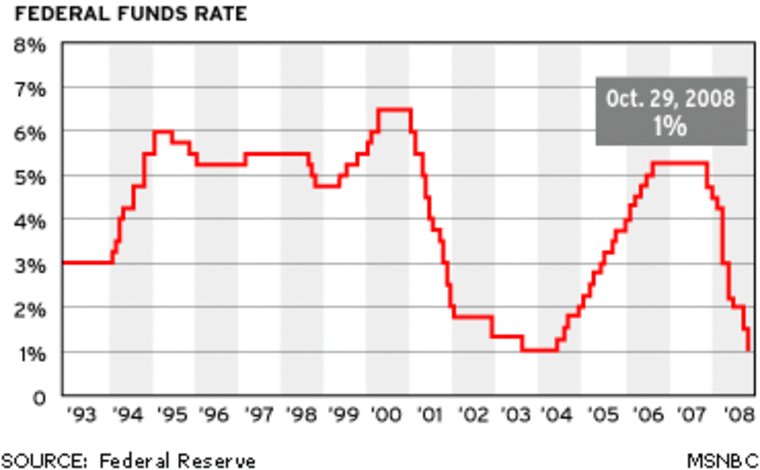The Federal Reserve left a key interest rate unchanged on Thursday, expressing new optimism on economic growth and lower inflation.
Fed Chairman Ben Bernanke and his colleagues voted unanimously to keep the federal funds rate, the interest that banks charge each other, at 5.25 percent, where it has been for the past year.
Analysts believe that Fed officials could remain on hold through the rest of this year and well into 2008. Investor hopes that the weakening housing market could trigger rate cuts in coming months have faded as the economy has showed signs of a rebound.
The Fed decision means that banks’ prime lending rate, the benchmark for millions of consumer and business loans, will remain unchanged at 8.25 percent, where it has been for the past year.
In a brief statement explaining its actions, the Fed continued to say that its greatest concern was that the risk of inflation will not moderate as expected.
But the Fed dropped a description in previous statements that inflation was “elevated.” Instead, it expressed some optimism about recent developments, saying “Readings on core inflation have improved modestly in recent months.”
The statement said that “a sustained moderation in inflation pressures has yet to be convincingly demonstrated.”
Wall Street initially rallied on the Fed’s more favorable comments on inflation.
David Jones, chief economist at DMJ Advisors, said the Fed’s comments signaled that the central bank is prepared to leave rates alone for the rest of this year.
“The tone of this statement implies to me that they see no reason to change policy any time soon,” Jones said.
The Fed sounded a positive note on economic growth, as well, saying, “The economy seems likely to continue to expand at a moderate pace over coming quarters.”
The government reported earlier Thursday that the economy, as measured by the gross domestic product, slowed to an annual rate of just 0.7 percent in the first three months of the year. While that was slightly higher than the 0.6 percent GDP rate estimated a month ago, it still marked the weakest growth rate in more than four years.
However, economists believe the economy staged a significant rebound in the April-June quarter which is just ending. They are forecasting that growth could come in at 3.5 percent or better for this period.
That would provide reassurance to the Fed that the troubles in housing were not threatening to pull the country into an outright recession.
In its statement, the Fed said that economic growth over the first half of this year appears to have been moderate “despite the ongoing adjustment in the housing sector.”
As signs of a stronger economy have increased, the possibility of a Fed rate cut in coming months has faded.
Many analysts believe the Fed could remain on hold until this time next year unless the housing problems worsen to such an extent that the central bank feels the need to cut rates in the fall.
The central bank raised rates from a 46-year low of 1 percent to the current 5.25 percent over a two-year period with the 17th rate hike occurring on June 29, 2006, the longest stretch of Fed rate hikes on record.
The Fed’s goal has been to achieve a soft landing in which economic growth slows enough to dampen inflation pressures but no so much that the country is pushed into a recession.
Full text of the Fed statement
The Federal Open Market Committee decided today to keep its target for the federal funds rate at 5.25 percent.
Economic growth appears to have been moderate during the first half of this year, despite the ongoing adjustment in the housing sector. The economy seems likely to continue to expand at a moderate pace over coming quarters.
Readings on core inflation have improved modestly in recent months. However, a sustained moderation in inflation pressures has yet to be convincingly demonstrated. Moreover, the high level of resource utilization has the potential to sustain those pressures.
In these circumstances, the Committee's predominant policy concern remains the risk that inflation will fail to moderate as expected. Future policy adjustments will depend on the evolution of the outlook for both inflation and economic growth, as implied by incoming information.
Voting for the FOMC monetary policy action were: Ben S. Bernanke, Chairman; Timothy F. Geithner, Vice Chairman; Thomas M. Hoenig; Donald L. Kohn; Randall S. Kroszner; Cathy E. Minehan; Frederic S. Mishkin; Michael H. Moskow; William Poole; and Kevin M. Warsh.
